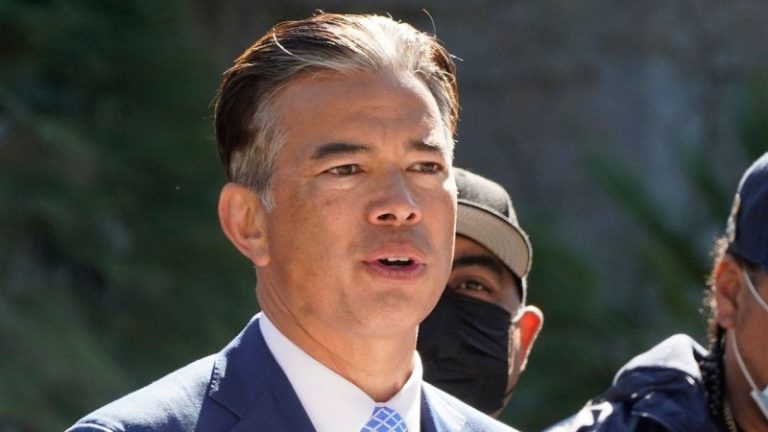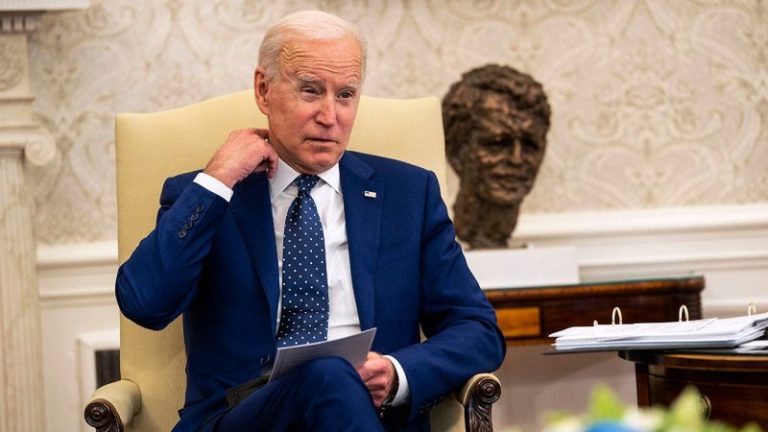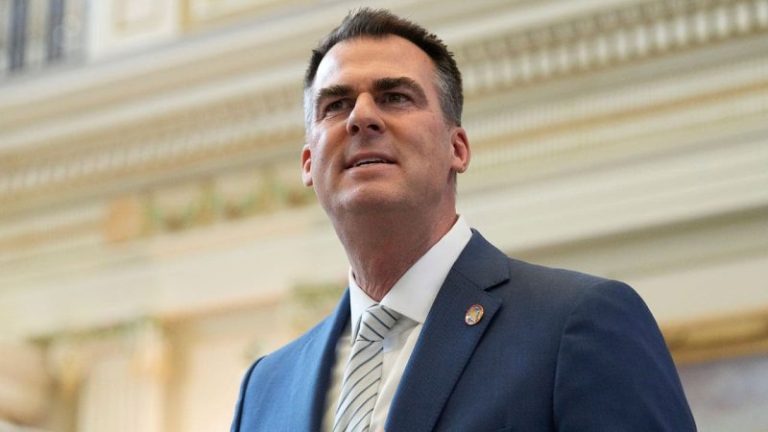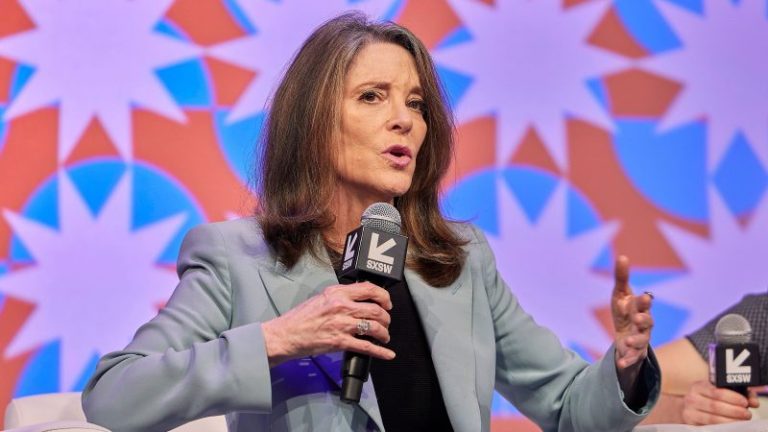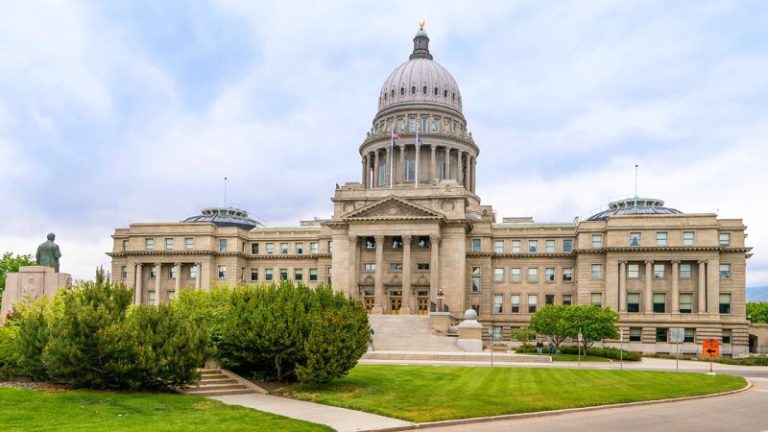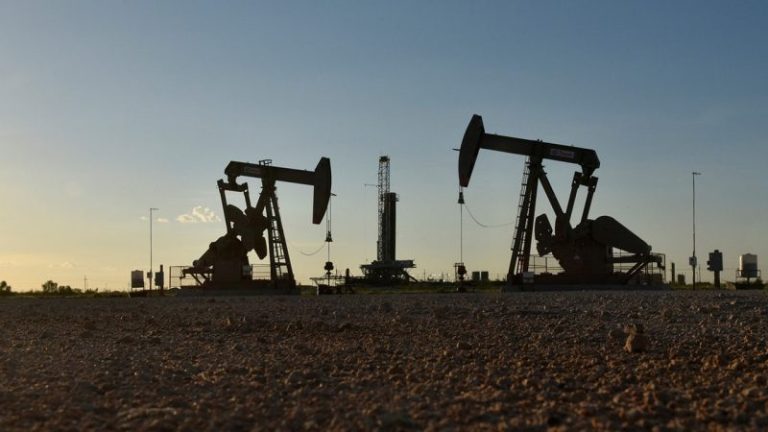The United States produces more oil and gas than any other country. Domestic production is increasing in some areas and decreasing in others, but new limits on parts of the drilling process could cut output significantly in the coming years.
From his first week in office, President Joe Biden vowed to shift from oil and gas production to clean energy. He announced a pause for leasing on federal lands and offshore waters. The Interior Department was called on to conduct a review of siting and permitting processes.
‘We’re going to review [and] reset the oil and gas leasing program,’ President Biden said during the executive order signing. ‘We’re going to start to properly manage lands and waterways in ways that allow us to protect [and] preserve them.’
The Interior Department completed its review in April of last year and announced reformed leasing procedures. Royalty rates, or the portion from oil and gas sales that companies pay to the government, would rise 50% — from 12.5% to 18.75%. The land nominated for drilling by the oil and gas industry was reduced by 80%.
‘We all pay 50% more for 80% less,’ U.S. Oil and Gas Association President Tim Stewart told Fox News’ Neil Cavuto following the leasing reforms announcement. ‘I think this is them trying to thread the needle, sort of split the hairs, saying, okay, we’re going to go ahead with a leasing program. We’re not going to put much out there.’
Oil and gas production has risen in the past decade, including on federal lands, which make up around 25% of total output. Most occurs on state or privately owned land. The government issues leases to companies who want to produce oil or gas on federally-owned lands. Once a company has the lease, they must also request a drilling permit. The permits usually last for two years or until the lease expires.
The Bureau of Land Management can also grant a 2-year extension to allow the operator more time to drill. The Biden Administration approved nearly 5,000 permits in 2021, the highest number in more than a decade. Those added to unexpired permits that were already approved. However, just 1,626 new wells were started in 2022.
The White House said oil and gas companies are blocking further production by not using all the available permits.
‘There are 9,000 unused approved drilling permits,’ former White House Press Secretary Jen Psaki told reporters last March. ‘So I would suggest you ask the oil companies why they’re not using those, if there’s a desire to drill more.’
Oil and gas groups argue the drilling permits apply to land that is already set aside for production. They believe more acreage is needed to actually increase output.
‘The 9000 lease claim from the administration is nonsense,’ said American Petroleum Institute Senior Vice President Frank Macchiarola. ‘The fact is we have nearly 100,000 producing wells in the United States of current leases. Two thirds of those leases are actually in production. That’s a 25-year-high. And so when the administration throws out this claim, about 9000 leases, what they’re really saying is we don’t want to produce more in the United States. We don’t want to make more areas available for production.’
Democrats believe that if land is set aside new energy production, some of that should include clean energy.
‘What we know is that America is the leader in the world in energy. We are blessed with abundant energy resources. That has to include the abundant resources of the sun, of the wind. That is cheaper energy,’ Rep Kathy Castor, D-Fla., said. ‘We want to build those vehicles. We want to have the solar panels manufactured here in America. We want to build the wind turbines here. And unless we invest in that cleaner, cheaper energy now, we will we will be more reliant on China and the rest of the world down the road.’
In 2021, during the leasing pause, just 407 new leases were issued by the Bureau of Land Management. It was the lowest number in the last two decades. The amount of land also fell below 25 million acres for the first time in the last 20 years. Western states in particular, had less production across all parts of the oil drilling process.
‘I’m from Wyoming, one of the energy breadbasket parts of this country. We can produce it. We have it. He’s making us keep it in the ground,’ Sen. John Barrasso, R-Wyo., said. ‘At the same time that he’s going asking Iran and Saudi Arabia and Venezuela, places run by dictators, to produce more. They don’t produce energy in the same responsible environmental way that we do in Wyoming and across the United States.’
Wyoming oil production on federal lands has yet to return to pre-pandemic numbers. The state output was about 8,000 barrels per day less than what was produced in 2019. Utah oil production is also still about 5,000 barrels short of its 2019 numbers. Colorado meanwhile has slightly increased production on federal lands, with about 200 more barrels per day than it had in 2019. Construction on new wells slowed and the number producing oil fell across all three states. Wyoming had the highest decrease, with more than 4,000 wells going offline in the last five years.
New Mexico has significantly increased its oil and gas production. In 2022 the state produced more than 977,000 barrels per day, just on federal land. That’s almost triple the amount it produced in 2018. In 2021, New Mexico received more federal land leases and more drilling permits than any other state. It also had the highest number of new wells under construction. The new production in New Mexico is likely because it holds part of the Permian Basin. Part of the energy-rich area is also located in Texas, where most oil production is done on privately-owned lands – rather than federally-owned. The region is producing at record levels, but experts say this kind of output was not always thought possible.
‘Folks were saying that the Permian Basin production would level out to under a million barrels per day,’ Macchiarola said. ‘In just a short time due to the innovation of the industry we’re seeing production of up to 6 million barrels per day. The Permian Basin is part of a larger story of the shale revolution here in the United States through ingenuity and technological advances in the industry.’
Natural Gas production has also been ramping up in some parts of the U.S. The Appalachian region is home to the Marcellus Shale. It is the second-largest natural gas find in the world. However, regulations and policies in regions like New England, are blocking permitting for pipeline projects that would transport gas.
‘The prices that people pay in New England for energy are far greater than they are in the rest of the country because we can’t unfortunately get that resource from right next door from the Marcellus,’ Macchiarola said.
Managing Director of Clearview Energy Partners Kevin Book said a lack of permitting reforms is causing problems for investment.
‘These are private businesses. They’re actually producing returns for shareholders,’ Book said. ‘Shareholders want their capital back when there’s not a good productive use for it. So what is happening is that their inability to access projects, that will deliver returns acceptable to them because of things like permitting that they can’t get, or the infrastructure — the pipes that they need — the ports they need to build it out and send the oil into the world.’
Senator Joe Manchin, D-W.Va., has tried to negotiate with other democrats to increase permitting. He believes his bill could be voted on in the house sometime soon.
‘We all realize it’s got to be done. If not, we cannot build what needs to be built and not deliver the energy the country needs,’ Manchin said Feb. 7 on Special Report.
Some Democrats acknowledge the transition to renewables will be a lengthy process.
‘The climate crisis is driving higher costs across the board as well,’ Castor said. ‘We have got to reduce climate pollution over time. But you can’t flip a switch. This has to be a managed transition.’
President Biden has also acknowledged that oil and gas will still be needed for a while longer. He said in his State of the Union address the U.S. will need it for at least another decade. He went even further in mid-February saying, ‘We’re going to need oil for a long time and gas for a long time. It’s not going to go away.’
Renewable energy output has also risen in recent years and now make up more than 12% of U.S. energy consumption. Petroleum and natural gas are still the two leading sources. Many lawmakers and economists agree that all forms of energy are necessary for the future.
‘The United States is an enormous producer of oil and gas,’ Book said. ‘Even if the United States transitions into cleaner fuels, and as a wealthy country we almost certainly will, there will be a world ready to consume what we produce. That’s money that we can earn here at home with fuels that are cleaner than what a lot of those countries are using right now. So a chance to clean them up while we make money, even as we transition at home. So it’s not necessarily an either/or. It can be both.’
Bret Baier is the Chief Political Anchor of Fox News Channel, and the Anchor and Executive Editor of ‘Special Report with Bret Baier.’ He is the author of four presidential biographies, which tackle the critical issues of our times. His fifth biography, To Rescue the Constitution:George Washington and the Convention that Saved the American Experiment, will be published in 2023.
This post appeared first on FOX NEWS



